A Mountain Top Experience
.jpg) Hey Everyone,
Hey Everyone,Doug
"Remember that it is not hasty reading, but serious meditation on holy and heavenly truths, that makes them prove sweet and profitable to the soul. It is not the mere touching of the flower by the bee that gathers honey, but her abiding for a time on the flower that draws out the sweet. It is not he that reads most, but he that meditates most, that will prove to be the choicest, sweetest, wisest and strongest Christian." (Thomas Brooks)
.jpg) Hey Everyone,
Hey Everyone,The Puritans knew that Scripture is the unalterable rule of holiness, and never allowed themselves to forget it. Knowing also the dishonesty and deceitfulness of fallen human hearts, then cultivated humility and self-suspicion as abiding attitudes, and examined them selves regularly for spiritual blind spots and lurking inward evils. They may not be called morbid or introspective on this account, however; on the contrary, they found the discipline of self-examination by Scripture (not the same thing as introspection, let us note), followed by the discipline of confessing and forsaking sin and renewing one’s gratitude to Christ for his pardoning mercy, to be a source of great inner peace and joy. We today, who know to our cost that we have unclear minds, uncontrolled affections, and unstable wills when it come to serving God, and who again and again find ourselves being imposed on by irrational, emotional romanticism disguised as super-spirituality, could profit much from the Puritans’ example at this point.
Labels: Church History, Holiness, Puritans
Here is an outstanding Piper moment. To paraphrase Dr. Martin Lloyd Jones, when I hear the cross preached I feel as I if I am being saved all over again.
God Bless,
Doug
 Again, David Hume’s argument against miracles can be broken down into two parts. Part 1 being the ‘in principle" or philosophical argument and part 2 being the "in fact" or historical and evidential arguments. The focus of this post is on part two of Hume’s argument. The basis of his argument is that if "in fact" a miracle is claimed to have taken place in the past and we wanted to actually weight the evidence and not use probability (see part 1) then we still should not believe the claims of the witnesses for a few different reasons. 1) We cannot trust the reliability of the witness because people who report these miracles tend to be uneducated, uncivilized, and even barbaric. 2) It is the nature of humans to gossip and exaggerate. 3) There are conflicting religions that claim miracles, so they in turn cancel each other out.
Again, David Hume’s argument against miracles can be broken down into two parts. Part 1 being the ‘in principle" or philosophical argument and part 2 being the "in fact" or historical and evidential arguments. The focus of this post is on part two of Hume’s argument. The basis of his argument is that if "in fact" a miracle is claimed to have taken place in the past and we wanted to actually weight the evidence and not use probability (see part 1) then we still should not believe the claims of the witnesses for a few different reasons. 1) We cannot trust the reliability of the witness because people who report these miracles tend to be uneducated, uncivilized, and even barbaric. 2) It is the nature of humans to gossip and exaggerate. 3) There are conflicting religions that claim miracles, so they in turn cancel each other out.Labels: Atheism, Naturalism, philosophy, Resurrection
 It is not difficult to look around this world and think, what can I do? I try to proclaim Christ’s message yet my efforts seem so small. With major organizations and most of the universities of this country producing theory after theory and book after book suppressing the truth of Christianity. Radio and TV spending millions of dollars to produce quickly paced emotionally charged stories and programs that glamorize pre-martial, extra-marital, and homosexual sex. Not to mention teaching our children that the name of the Lord is merely a word that is to be used in vain to curse someone or make a joke. With all of this and the struggling nature of many small churches, we may start to wonder what can be accomplished, but before you begin to doubt, remember these promises that God made to the Israelites which still apply to God’s children…
It is not difficult to look around this world and think, what can I do? I try to proclaim Christ’s message yet my efforts seem so small. With major organizations and most of the universities of this country producing theory after theory and book after book suppressing the truth of Christianity. Radio and TV spending millions of dollars to produce quickly paced emotionally charged stories and programs that glamorize pre-martial, extra-marital, and homosexual sex. Not to mention teaching our children that the name of the Lord is merely a word that is to be used in vain to curse someone or make a joke. With all of this and the struggling nature of many small churches, we may start to wonder what can be accomplished, but before you begin to doubt, remember these promises that God made to the Israelites which still apply to God’s children…Labels: Devotional, Strength, Zeal
 The man who is a pretender to saintship, but whose heart tells him he has nothing but the name, carries Christ in his Bible but not in his heart. Some politic design spurs him on in the ways of God; he makes religion a lackey to his carnal interest. What is this but to abuse God to his face, and to serve the devil in Christ’s livery? Hypocrisy makes the fury rise up in God’s face; therefore he calls such persons ‘the generation of his wrath’ (Isa. 10:6).
The man who is a pretender to saintship, but whose heart tells him he has nothing but the name, carries Christ in his Bible but not in his heart. Some politic design spurs him on in the ways of God; he makes religion a lackey to his carnal interest. What is this but to abuse God to his face, and to serve the devil in Christ’s livery? Hypocrisy makes the fury rise up in God’s face; therefore he calls such persons ‘the generation of his wrath’ (Isa. 10:6).Labels: Devotional, Sin, Worldly
 David Hume in his article “Of Miracles” has made what appears to be a strong case against miracles. His article is continually read on college campuses and is still held as one of the strongest arguments against miracles. Almost all the arguments against miracles that were to follow are merely restated versions of Hume’s arguments. In fact, David Hume touted his own argument as the definitive argument that will be used by all wise and learned men as long as the world endures. This argument can be broken down into two parts, the “in principle” argument and the “in fact” argument.
David Hume in his article “Of Miracles” has made what appears to be a strong case against miracles. His article is continually read on college campuses and is still held as one of the strongest arguments against miracles. Almost all the arguments against miracles that were to follow are merely restated versions of Hume’s arguments. In fact, David Hume touted his own argument as the definitive argument that will be used by all wise and learned men as long as the world endures. This argument can be broken down into two parts, the “in principle” argument and the “in fact” argument.Labels: apologetics, Naturalism, philosophy, Resurrection
I have no idea what this has to do with Godwardthoughts but I couldn't help but post it. I had so much fun watching it.
I posted a link to this video on Godtube a while back, but I just posted it on youtube.
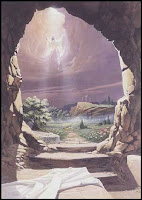 When refuting arguments against the resurrection, it is important to know the core facts that most scholars believe about the events surrounding Jesus’ death. There are usually at least four core facts that are held by Christian and non-Christian scholars.
When refuting arguments against the resurrection, it is important to know the core facts that most scholars believe about the events surrounding Jesus’ death. There are usually at least four core facts that are held by Christian and non-Christian scholars.Labels: apologetics, Naturalism, Resurrection
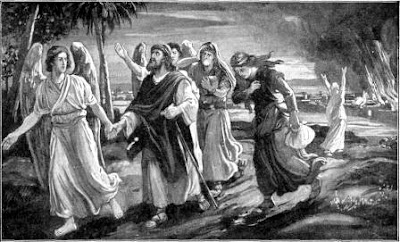
Labels: affections, Devotional, Worldly Pleasures, Zeal
"Thou art my portion, O Lord." - Psa_119:57
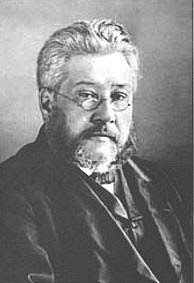 Some have their portion in the city; their wealth is abundant, and flows to them in constant streams, until they become a very reservoir of gold; but what is gold compared with thy God? Thou couldst not live on it; thy spiritual life could not be sustained by it. Put it on a troubled conscience, and could it allay its pangs? Apply it to a desponding heart, and see if it could stay a solitary groan, or give one grief the less? But thou hast God, and in him thou hast more than gold or riches ever could buy. Some have their portion in that which most men love-applause and fame; but ask thyself, is not thy God more to thee than that? What if a myriad clarions should be loud in thine applause, would this prepare thee to pass the Jordan, or cheer thee in prospect of judgment? No, there are griefs in life which wealth cannot alleviate; and there is the deep need of a dying hour, for which no riches can provide. But when thou hast God for thy portion, thou hast more than all else put together. In him every want is met, whether in life or in death. With God for thy portion thou art rich indeed, for he will supply thy need, comfort thy heart, assuage thy grief, guide thy steps, be with thee in the dark valley, and then take thee home, to enjoy him as thy portion for ever. "I have enough," said Esau; this is the best thing a worldly man can say, but Jacob replies, "I have all things," which is a note too high for carnal minds.
Some have their portion in the city; their wealth is abundant, and flows to them in constant streams, until they become a very reservoir of gold; but what is gold compared with thy God? Thou couldst not live on it; thy spiritual life could not be sustained by it. Put it on a troubled conscience, and could it allay its pangs? Apply it to a desponding heart, and see if it could stay a solitary groan, or give one grief the less? But thou hast God, and in him thou hast more than gold or riches ever could buy. Some have their portion in that which most men love-applause and fame; but ask thyself, is not thy God more to thee than that? What if a myriad clarions should be loud in thine applause, would this prepare thee to pass the Jordan, or cheer thee in prospect of judgment? No, there are griefs in life which wealth cannot alleviate; and there is the deep need of a dying hour, for which no riches can provide. But when thou hast God for thy portion, thou hast more than all else put together. In him every want is met, whether in life or in death. With God for thy portion thou art rich indeed, for he will supply thy need, comfort thy heart, assuage thy grief, guide thy steps, be with thee in the dark valley, and then take thee home, to enjoy him as thy portion for ever. "I have enough," said Esau; this is the best thing a worldly man can say, but Jacob replies, "I have all things," which is a note too high for carnal minds.Labels: Devotional, The Gospel
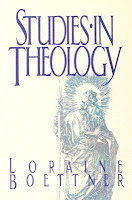 "In the year 1861 the French Academy of Science published a list of fifty-one so-called scientific facts, each of which, it was alleged, disproved some statement in the Bible. Today the Bible remains as it was then, but not one of these fifty-one so called Facts is held by men of science.. . .. Does anyone really believe that science and Philosophy have yet reached, even approximately, their final form? May it not rather be contended that they are so far removed from their ultimate [true] form that if the teachings of the Bible were in complete harmony with present-day science and philosophy they would be out of harmony with the science and philosophy of the future."
"In the year 1861 the French Academy of Science published a list of fifty-one so-called scientific facts, each of which, it was alleged, disproved some statement in the Bible. Today the Bible remains as it was then, but not one of these fifty-one so called Facts is held by men of science.. . .. Does anyone really believe that science and Philosophy have yet reached, even approximately, their final form? May it not rather be contended that they are so far removed from their ultimate [true] form that if the teachings of the Bible were in complete harmony with present-day science and philosophy they would be out of harmony with the science and philosophy of the future."
Labels: apologetics, Atheism, Inspiration of Scripture, philosophy, The Word
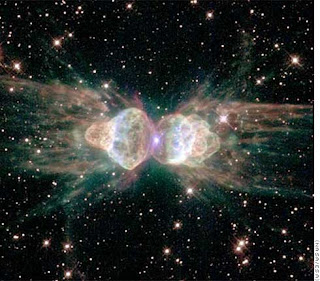 Many naturalistic philosophers argue that god is less and less needed to explain natural phenomena because science continues to explain more and more of it without him. Therefore, God is becoming less and less needed, and pointing to gaps in the scientific data to bolster belief in God is slowly being eradicated.
Many naturalistic philosophers argue that god is less and less needed to explain natural phenomena because science continues to explain more and more of it without him. Therefore, God is becoming less and less needed, and pointing to gaps in the scientific data to bolster belief in God is slowly being eradicated.Labels: apologetics, Atheism, Naturalism
 Here is a link to an outstanding example of apologetics. It is a six part interchange between a theologian, Douglas Wilson, and an atheist, Christopher Hitchens.
Here is a link to an outstanding example of apologetics. It is a six part interchange between a theologian, Douglas Wilson, and an atheist, Christopher Hitchens.Labels: apologetics, Atheism, Debate, Ethics, Naturalism